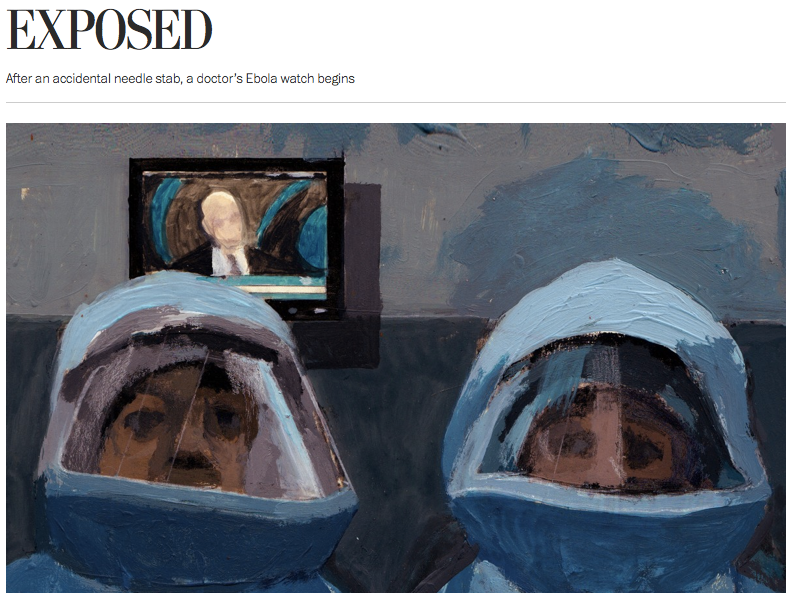The Washington Post today published one of the best long features that’s been written about the Ebola crisis. Its subject is Lewis Rubinson, a doctor who was treated with an experimental drug and isolated at a National Institutes of Health hospital in Maryland after accidentally jabbing himself with a possibly Ebola-infected needle at a Sierra Leone treatment center. While Rubinson was ultimately found to have never contracted the diesease, the experience was (obviously) quite frightening—and left him with a unique perspective on the different ways the outbreak is being handled and talked about in West Africa and in the United States.
At the hospital in Kenema, Sierra Leone, where Rubinson was exposed, the simple logistical problems of working in an underfunded, understaffed facility are an enormous obstacle to treatment:
The team had little information about who was in the ward among the confirmed cases, suspects and confirmed convalescing. If you asked just basic questions (“What’s your name?” “How long have you been here?” “How long have you had symptoms?”), giving each patient two minutes, you would soon exhaust a two-hour stint without having provided any care.
And how to even record the information? You couldn’t bring electronics into the dilapidated one-story building, with its unreliable electricity and no WiFi. And you couldn’t take pieces of paper out of the ward for fear they would carry the virus.
After Rubinson reports his possible exposure, though, he is taken into a treatment system that, to patients in Sierra Leone, would probably seem like something fron science fiction—he’s flown to the United States on a specially outfitted jet, rushed to a hospital with police escort, and treated by a large staff of nurses in a room equipped with an iPad, computer, TV, intercom, and telephone. And as he follows the media’s Ebola coverage, he’s increasingly disappointed at the disproportionate time spent on speculation about extreme anti-disease measures in the United States (preparing every hospital in the country to handle cases, developing miracle drugs) as compared with reporting on the relatively simple needs of countries in West Africa (more health professionals and more basic equipment). Neither Rubinson nor reporter Frances Stead Sellers come across as self-righteous—the Post article is a record of what Rubinson went through and thought about, not a polemic. But as an American, I found it tough to read the piece and not feel like our self-involved paranoia is costing lives abroad.
